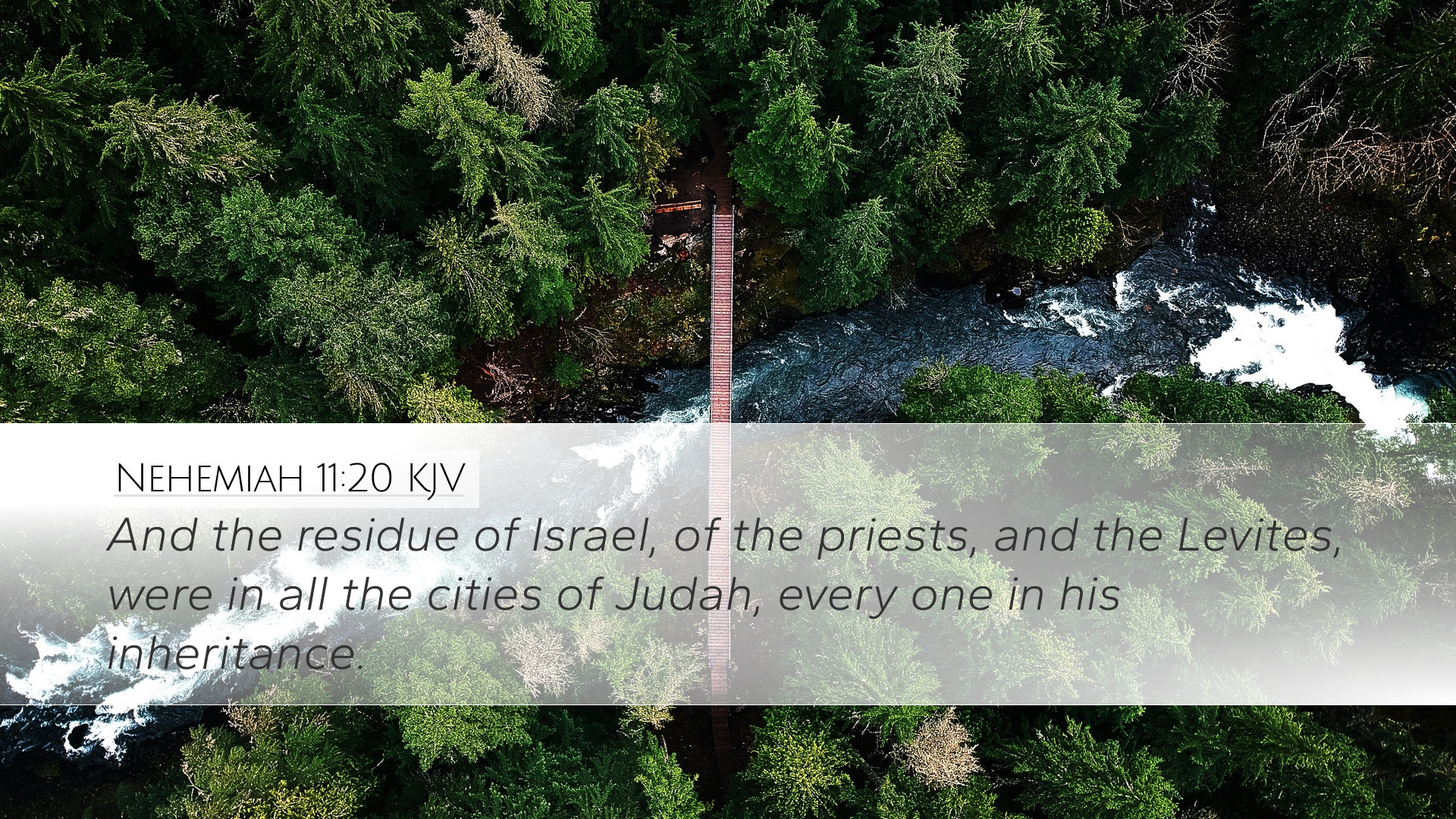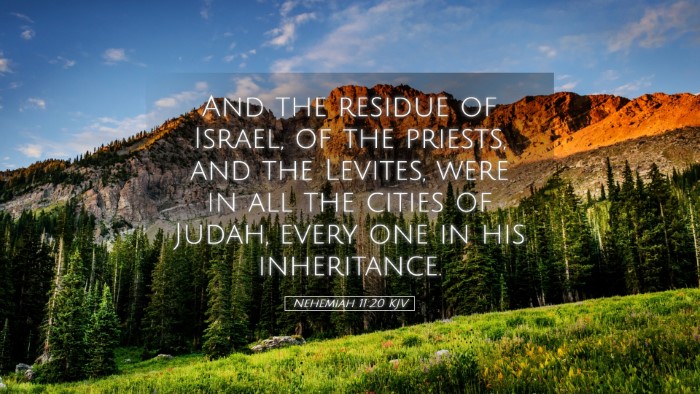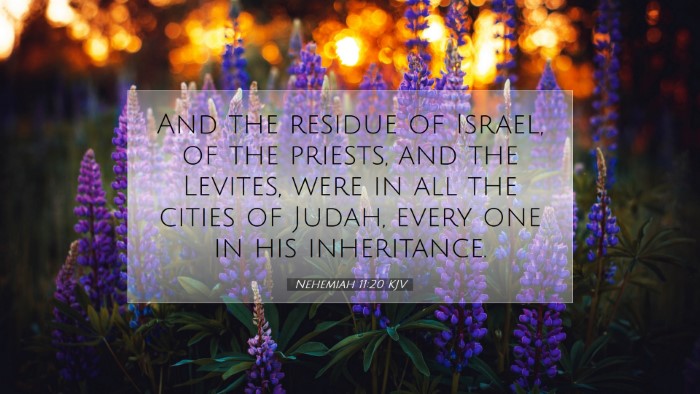Commentary on Nehemiah 11:20
Introduction
Nehemiah 11:20 states: “And the residue of Israel, of the priests, and the Levites, were in all the cities of Judah, every one in his inheritance.” This verse provides a pivotal moment in the post-exilic community’s restructuring, highlighting the distribution of the people among the cities of Judah. This commentary synthesizes insights from various public domain sources to elucidate its theological and practical implications.
Contextual Background
To appreciate the significance of Nehemiah 11:20, one must consider the historical background. Following the return from Babylonian exile, Jerusalem faced significant challenges, including physical reconstruction (the walls and Temple) and social restructuring. Nehemiah's leadership not only involved building but also ensuring the proper organization of the community.
Analysis of the Text
The verse serves several critical functions in the narrative:
-
Preservation of Identity:
Matthew Henry notes that the reference to “the residue of Israel” signifies a remnant, emphasizing God’s faithfulness in preserving a people for Himself despite the adversity faced during exile.
-
Importance of Inheritance:
Albert Barnes points out that the phrase "every one in his inheritance" stresses the importance of land allotments according to the tribes of Israel, which reflects a longstanding tradition within the nation’s identity. This indicates that the returned exiles were resettling according to their ancestral heritage, which was integral to their societal structure.
-
Role of Religious Leaders:
Adam Clarke observes the pivotal role of priests and Levites in this verse. He emphasizes that their presence in the cities of Judah suggests an intentional strategy to maintain the worship of Yahweh in every locality, reflecting the need for spiritual guidance among the people.
Theological Implications
The verse is rich in theological implications:
-
Divine Providence:
The portrayal of the people returning to their inheritances serves as a testament to God’s providence. It illustrates that God orchestrates history and fulfills His promises to His people, as noted by Matthew Henry.
-
Unity and Diversity:
Clarke emphasizes the unity within the diversity of the community, showing that while the returned Israelites were placed in various cities, they remained a cohesive body with a common mission—to worship and serve God.
-
Challenges of Restoration:
This communal structuring was not without tension; Barnes highlights that reestablishing a community involves both the blessings and challenges of integrating diverse groups within the societal framework.
Pastoral Applications
For pastors, Nehemiah 11:20 offers essential insights in terms of community building:
-
Value of Heritage:
Encouraging congregants to reconnect with their spiritual and familial heritage is vital. Like the Israelites, modern believers benefit from understanding their identity in Christ and within the church.
-
Intentional Leadership:
Pastors, like Nehemiah, must lead with a clear vision, ensuring that every member feels valued and placed according to their gifts and callings within the body of Christ.
-
Cultivating Community:
The building of a community that reflects both unity and diversity, honoring each member's unique contribution, aligns with the scriptural vision for the church. This fosters an environment of worship and service, much like that intended for Israel in their cities.
Conclusion
Nehemiah 11:20 serves as a powerful reminder of God’s faithfulness in restoring His people and establishing order among them after a time of exile. The verse encapsulates themes of heritage, community, and divine providence that resonate through the ages. For scholars and theologians, it provides fertile ground for reflection on how God organizes His people for worship and mission today, urging a return to the foundational principles of identity, belonging, and service.


